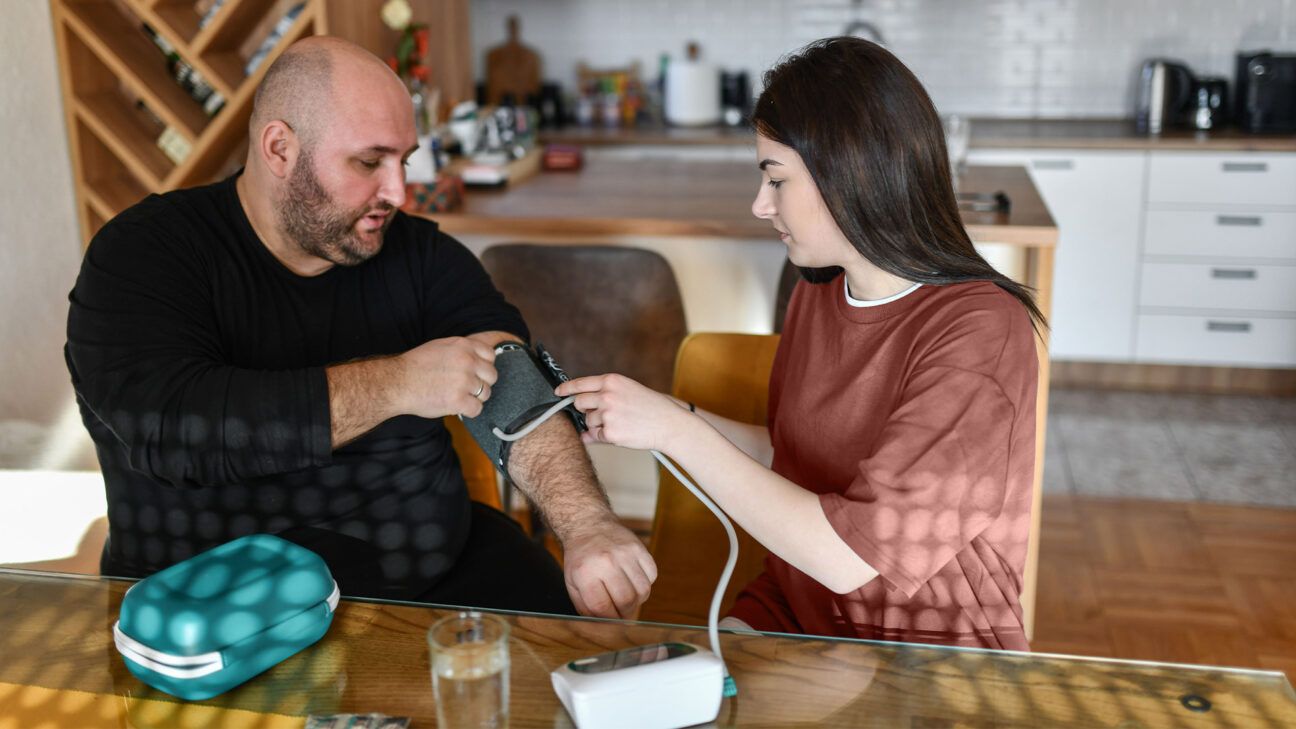Blood
Drug Zilebesiran Drops Blood Pressure for 6 Months With Single Shot
- A new drug called zilebesiran may help lower blood pressure for as long as 6 months with just one injection.
- The findings were presented at the at the American Heart Association’s Scientific Sessions 2023.
- Current hypertension medications need to be taken once a day, and many people struggle with the regimen.
Scientists have identified a new blood pressure medication, administered by a single injection, that can significantly lower blood pressure for up to six months.
The drug, called zilebesiran, inhibits the body’s ability to produce angiotensin, a chemical made mainly in the liver that causes blood vessels to constrict, increasing blood pressure. As such, zilebesiran works by reducing constriction of blood vessels and can significantly lower blood pressure, the new research found.
The findings were presented at the at the American Heart Association’s Scientific Sessions 2023, hosted Nov. 11-13, in Philadelphia, PA. The study findings have not yet been published in a peer-reviewed journal.
Current medications need to be taken once a day, and many people struggle with remembering to take their medication on schedule.
This can lead to issues with their blood pressure levels and increase their risk of a cardiovascular event such as a heart attack or stroke.
Heart disease is the number one cause of death in the United States, and a long-lasting treatment that can be given in one dose could substantially improve outcomes for people with hypertension.
“Since not all patients consistently take their medications as prescribed, a medication that is effective for 6 months after a single injection has the potential to improve health outcomes for patients,” Dr. Cheng-Han Chen, a board-certified interventional cardiologist and medical director of the Structural Heart Program at MemorialCare Saddleback Medical Center in Laguna Hills, CA, told Healthline.
Chen was not involved in the research.
Zilebesiran led to major reductions in blood pressure
The researchers investigated the safety and efficacy of zilebesiran in 394 people with mild-to-moderate hypertension, which is defined as having systolic blood pressure between 135-160 mm Hg.
Systolic blood pressure measures the amount of pressure in your arteries as the heart contracts.
The participants had an average systolic blood pressure of 142 mm Hg.
They were then randomly assigned to receive a specific subcutaneous dose of zilebesiran — 150, 300 or 600 mg once every six months or 300 mg once every three months — or a placebo.
Over the course of the six-month study, the team found that the injection dramatically reduced systolic blood pressure — by at least 10mmHg on average, and, in some cases, by 20mmHg or more.
“In this study, the investigators demonstrated that an injection every 3-6 months can sustainably reduce blood pressure 20 mmHg or more,” said Dr. Vivek Bhalla, an associate professor of medicine (nephrology) and director of the Hypertension Center at Stanford Medicine.
Bhalla was not involved in the research.
Those who took zilebesiran were more likely to have a 24-hour average systolic blood pressure of 130 mm Hg or less by the six-month mark.
Few participants experienced adverse events, which predominantly included mild reactions at the injection site.
There were two instances of orthostatic hypotension and one person who experienced blood pressure elevation.
No patients experienced problems with kidney or liver function.
“As the average systolic blood pressure at the start of this study was 142mmHg, this meant that a patient’s blood pressure could be brought to a ‘normal’ range simply with this injection, without the help of additional blood pressure medications,” said Chen.
Zilebesiran could be given quarterly or bi-annually, improving adherence
According to Chen, it’s believed that many people do not take their blood pressure medications as prescribed.
A report from 2018 found that roughly 61% of participants took their antihypertensive medications on schedule.
Taking daily medications is difficult, even for the most motivated patients, says Bhalla.
“A big problem is simply the large number of prescribed medications that patients need to keep track of, some of which need to be taken multiple times a day,” Chen said.
Research shows that poor medication adherence increases the risk of cardiovascular events, poor renal function, including end-stage kidney disease, and death.
We currently do not have any blood pressure medications that are effective for this period of time — six months — after a single dose.
This type of dosing can help people improve their blood pressure without needing to rely on daily medication, says Chen.
“Infrequent but effective injectable treatments for hypertension may potentially obviate the consequences of medication non-adherence which is a major factor in high rates of uncontrolled blood pressure in the US and across the world,” Bhalla said.
Before the drug can be widely used, more research is needed to better understand its efficacy and safety profile
Chen says “studies that examine cardiovascular outcomes would give us a better sense of how this type of treatment compares to our current medications.”
The bottom line:
Scientists have identified a new blood pressure medication, administered by a single injection, that can significantly lower blood pressure for up to six months. Current medications need to be taken once a day, and many people struggle with remembering to take their medication on schedule. This drug, zilebesiran, has the potential to improve health outcomes for patients with hypertension.

